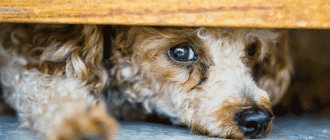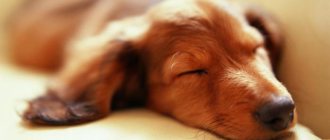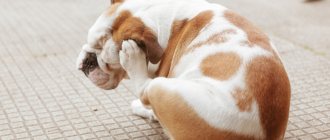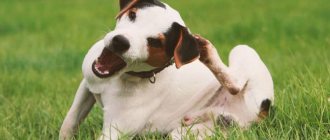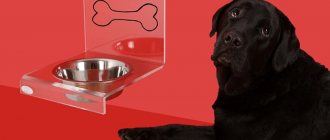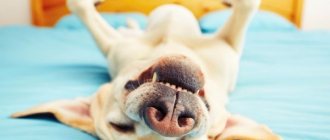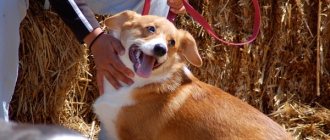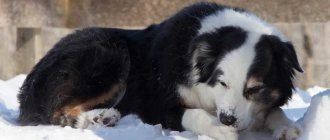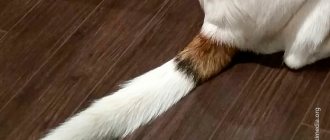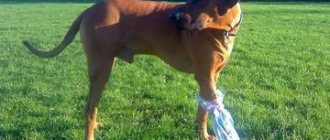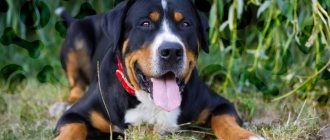Anatomy of snoring
Anatomical structure is the primary reason why a pet may snore. Artificially bred breeds and dog species that have undergone careful selection are subject to its influence. They are called the term "brachycephalic".
These are short-faced breeds with a flattened nose. Flat nostrils, nasal passages narrowed during selection, soft palate, irregular laryngeal sacs - all this leads to the fact that the dog snores in his sleep.
With age, problems with the cardiovascular system are added to the congenital characteristics of brachycephalics. This further negatively affects the sleep process. In addition, with poor nutrition, the pet becomes obese, which increases the level of canine decibels.
Natural Causes of Snoring in Dogs
- Animals, just like humans, dream. This can be easily noticed if you watch your pet during sleep. The dog makes sudden movements with its limbs (as if running), whines, growls, barks (muffled) and even snores. These are normal phenomena that manifest themselves differently for everyone.
- The most common positions for snoring are lying on your back or side. When the pet changes its sleeping position, the problem disappears.
- Older dogs snore more often. This is due to weakened tone and greater relaxation of smooth muscles during rest.
- Brachycephalic dogs snore and grunt in their sleep from an early age. Their breathing is difficult even while they are awake. This is a consequence of their unusual head shape and accompanying anatomical features.
Why does a dog snore in his sleep?
As a temporary phenomenon, snoring may occur in the following cases:
- Taking medications. During the period of therapy, when sedatives, antispasmodics or painkillers are prescribed, during sleep the dog begins to snore while breathing.
- Stress, uncomfortable living conditions, and changes in environment can provoke changes in breathing during the rest period.
Leaders in snoring
The list includes a significant portion of dogs belonging to the brachycephalic type. Their snoring regularly “delights” the ears of their owners.
Here is a list of breeds that are more likely to snore than others:
- pug;
- bulldog;
- Pekingese;
- Japanese Chin;
- Shar Pei.
The full list would be very long. It will include a small Spitz and a huge Cane Corso. The latter “knows how” to snore like an adult man, the reason is a shortened muzzle and a weakened palate.
Small French bulldogs sniffle and constantly grunt in their sleep. The miniature Chihuahua snores loudly, surprising strangers with its power.
German shepherds and Rottweilers begin to frighten their owners only when they reach a considerable age, by dog standards.
Causes of snoring in dogs of other breeds
Of course, all of the above pathologies can also occur in representatives of other breeds with a normal skull structure. But this doesn't happen often. In “normal” dogs, snoring develops for other reasons, including quite dangerous pathologies.
Tracheal collapse
A very severe and dangerous pathology, one of the first signs of which is snoring. By the way, pugs are highly susceptible to the disease. Other brachycephalic breeds are not predisposed to collapse (but are susceptible to hypoplasia of the same organ). Practice proves that the chances of getting sick are significantly higher among representatives of small breeds:
By “collapse” we mean a narrowing of the trachea, whereas normally its lumen should always be maintained! The cartilaginous rings that create the skeleton of this tubular organ are responsible for this. The essence of tracheal collapse is that the rings begin to fall off. If you imagine a cut organ in a transverse view, then the cut will be almost round. At the fourth stage of collapse, the same section looks more like a strongly compressed and elongated number 0. Air almost does not pass through such a trachea, the dog will probably die from suffocation.
In the first stage, the only symptom may be gradually increasing nighttime snoring. There is only one effective treatment - an expensive surgical operation, during which damaged rings are either replaced with implants (ideal option), or the lumen of the trachea is maintained by inserting a special metal “sleeve”.
Other causes of snoring
In veterinary practice, there are other reasons for the development of snoring in dogs with a “correct” skull:
Source
How to help brachycephals
The anatomical structure created for human needs negatively affects the animal’s sleep. In order for your pet to snore less, you need to monitor the temperature in the room and not overheat it. The smells of tobacco and perfumes are harmful to animals.
You should not put a tight collar on a brachycephalic person, which would compress the throat and interfere with breathing. It is better to do without a traumatic harness, but to keep the animal at home without a collar at all.
Your pet needs regular checkups. You need to pay attention to the cleanliness of the nostrils, to the narrowing or openness of the channels. From time to time it is worth listening to the depth and frequency of snoring. If there are long periods of holding your breath or the sound of snoring is unusual, you should contact your veterinarian.
Interesting! A dog's natural snoring is beneficial for older people. At night, through their sleep, they hear their pet, the sounds calm the psyche. An elderly person does not feel lonely when falling asleep.
Breeds are predisposed to snoring
This is due to physiology. Dogs with wide, flattened muzzles usually snore. Such pets include, for example, boxers, pugs, chow chows and bulldogs. In this case, it will not be possible to smooth out the condition, but there is no need to worry.
Sometimes snoring can occur while taking medications. Narrowing of the lumen can be caused by painkillers, tranquilizers and muscle relaxants. They can relax the tissue so much that partial obstruction occurs.
Sick pet
Sneezing, runny nose, and watery red eyes are clear signs of a dog with a cold. In addition, a sick pet may experience swelling in the lining of the throat, causing unhealthy snoring. If your dog suddenly starts snoring in his sleep, and this has never happened before, then this is a reason to contact a veterinarian. You can first help your dog by giving it antihistamines.
Swelling of the mucous membrane that causes snoring can be triggered by an acute allergic reaction. In this case, the dog snores intermittently, with frequent delays. Such intense snoring is a reason to urgently show your pet to a specialist.
Snoring is caused by asthma. At night, sleep is accompanied by snoring, and while awake the dog often tries to take a breath of air, stretching its neck unnaturally.
The causes of unusual snoring are damage to the genitourinary system and helminthic infestation. In all cases, the veterinarian conducts an extensive examination, including x-rays, ultrasound, urine and blood tests.
Snoring in a dog as a symptom
In brachycephalic dogs, it is necessary to exclude thickening (hyperplasia) of the soft palate. Pathology can provoke suffocation in a dog during sleep, when the animal’s muscles relax. Most often, pets with flat or upturned nostrils suffer from the disease - Boxers, Japanese Chins, Pugs, Bulldogs. The veterinarian examines the dog and orders a laboratory blood gas test. Together with the medical history, the doctor decides what to do next, and there are only 2 options - observe and perhaps the dog will happily live a full life or operate. If your “flat-nosed friend” sniffles and grunts constantly, without delay, show the dog to a doctor who will determine whether this is normal; most often, the pathology is associated with weight gain and overload of the heart muscle.
If your dog suddenly starts snoring, you should conduct a general examination and monitor the pet. Most often, in parallel with breathing problems, other symptoms are observed - weakness, pallor of the mucous membranes, depression. The first thing to rule out is swelling of the nasal mucosa due to a cold. Typically, when a pet has a cold, there is sneezing, mucous discharge from the nose, redness of the eyes and tearfulness. Coughing during a cold is an aggravated situation when swelling moves from the nasopharynx to the throat, and then bronchitis and pneumonia develop.
Due to allergic swelling of the larynx, the dog wheezes and suffocates, which is an acute and dangerous condition. Your task is to relieve the swelling with the help of antihistamines and show the animal to the veterinarian. Please note that until you identify the source of the allergen, the dog will be in danger.
The most common cause of inconvenience for owners due to their own ignorance, when a dog snores like a human, sniffles and grunts when walking, is obesity. Few people realize how dangerous a few extra pounds can be for a pet. The joints, heart and all metabolic processes of the body are affected. The dog has difficulty breathing during sleep due to chest compression and swelling of the laryngeal tissue due to slow metabolism.
Asthma is one of the causes of snoring in pets and a serious pathology that can be caused by a number of reasons - unfavorable environmental conditions, inhalation of cigarette smoke, brachycephalic syndrome, allergies, heart failure, etc. Asthma attacks are expressed by obvious suffocation, the dog lowers its head and stretches its neck, opening its mouth, trying to catch air. The pathology must be controlled, including with medication.
Urolithiasis sooner or later progresses to the stage of blockage of the ureters, which leads to displacement of internal organs and is accompanied by pain. A disease of the genitourinary system can cause both snoring and extraneous wheezing when breathing while awake.
Consequences of injury
Snoring may be a consequence of trauma suffered by the dog. The simplest is the entry of a foreign body into the respiratory tract. You need to quickly contact a veterinarian, he will remove the foreign object. The animal will be able to breathe normally, and as a result, snoring will go away.
It is more difficult if there is a broken nose or a serious injury to the muzzle. Plastic surgery is not performed on dogs. Damaged airways will heal, but will remain disfigured for life. Snoring will haunt your pet for the rest of his days.
A ten-second breath hold should be a signal of problems in the body. This disorder is called "sleep apnea." This snoring may result from an injury. The animal does not regain its strength during such sleep.
Snoring is caused by injuries to the dog's jaws and throat muscles as a result of trauma. Snoring may occur if the animal has an abnormal bite.
How to deal with dog snoring
The examination revealed that your ward is healthy, but the dog continues to snore heavily in his sleep? This means that most likely the reason is in the living conditions of the animal. Review your pet's diet and, if necessary, switch your dog to a dietary diet. Pay attention to measuring the temperature and humidity in your home; your pet’s mucous membranes may dry out during sleep. Pay attention to the position in which the dog sleeps and, if necessary, change the bed so that the pet can stretch out its paws while lying on its side.
Source
If your puppy snores
A puppy can snore too! Especially if he belongs to the list of brachycephalic breeds or simply falls asleep on his back with his belly up. Snoring in babies is a concern for inexperienced owners, but this is actually normal for dogs with short muzzles. There is nothing you can do about it, just make the animal comfortable.
You can solve the problem of snoring in a small dog if the cause is overfeeding. Here you just need to reduce the portion, and not allow the puppy to disrupt his diet or beg for treats from the table.
Sometimes snoring is caused by the presence of worms in the body - the parasites need to be expelled. Just choose the drug and dosage according to the age and weight of the pet.
If the baby sleeps, stretched out in place, has eaten normally, and has not been subjected to severe stress, then the cause of snoring should be looked for together with a veterinarian.
What to do if your dog snores
It is often difficult to identify the cause of an animal’s snoring on your own. To make a more accurate diagnosis and speedy recovery of your pet, when snoring first appears, you should consult a specialist. He will conduct a thorough examination and refer you to undergo the necessary tests.
If your pet is overweight without other concomitant diseases, you must:
If the dog is completely healthy, but snoring continues, you should pay attention to:
Helping a Snoring Dog
If your pet is not brachycephalic, but for some reason snores in its sleep, it is better to consult a veterinarian. Take your dog for a full examination and get all tests done. If you find a disease, treat your pet.
Protect your dog from unnecessary stress, it also provokes snoring. For simple cases (for docile animals), there are throat rinses in the form of aerosols.
The veterinarian declared the dog completely healthy, but the snoring problem has not disappeared? Carefully review your pet's daily exercise, its diet and environment. Try to walk him away from noisy roads, and do not go near trash cans or places where hazardous waste accumulates.
Put your dog on a diet, eliminating sweets and foods that are harmful to human friends from the diet. But you cannot deprive your four-legged pet of the required daily dose of vitamins and microelements. Otherwise, instead of solving the problem with snoring, you will get a new bunch of diseases.
Place to sleep
Observe how the dog sleeps, in what position, and whether it fits comfortably on the bed. Ideally, the animal should fit completely in its place, with its legs extended. Snoring can occur from an awkward position or when the head hangs down.
It is recommended to ventilate the room before going to bed for a good sleep for humans, but this procedure will not hurt animals either. The second important aspect in the fight against snoring is normal temperature and humidity. Sleeping in a too hot, stuffy room is not good for either people or dogs.
Snoring as a natural phenomenon
Breeds with deformed faces, brachycephals, have breathing problems due to thinned nasal passages and flat nostrils. Even in full health, a dog snores and grunts in its sleep and this is considered normal. In fact, brachycephalics are prone to problems with the cardiovascular system, asthma attacks, and excess weight, which is directly related to respiratory tract defects.
This is interesting! There is a version that snoring dogs are ideal companions for elderly and lonely people. In a dream, a person hears his pet, which has a positive effect on the psyche.
If you are concerned about why your dog snores in his sleep, we advise you to analyze the situation. Pets run, bark, sniffle and growl in their sleep; snoring is a sign of constriction or relaxation of the respiratory tract, which may be the effect of a dream or an uncomfortable position. Breeders note that dogs who prefer to sleep on their backs or in a ball snore much more often.
